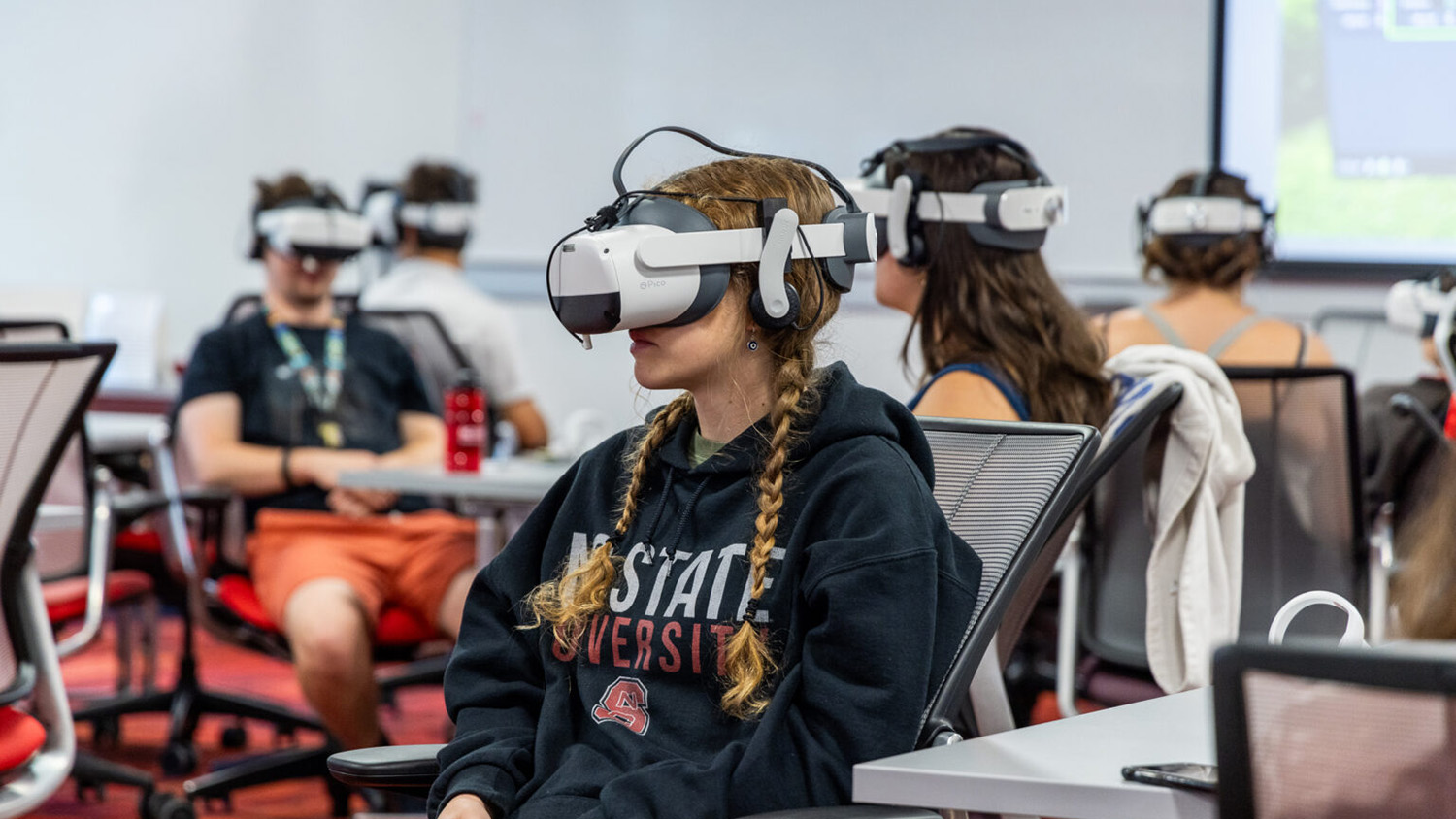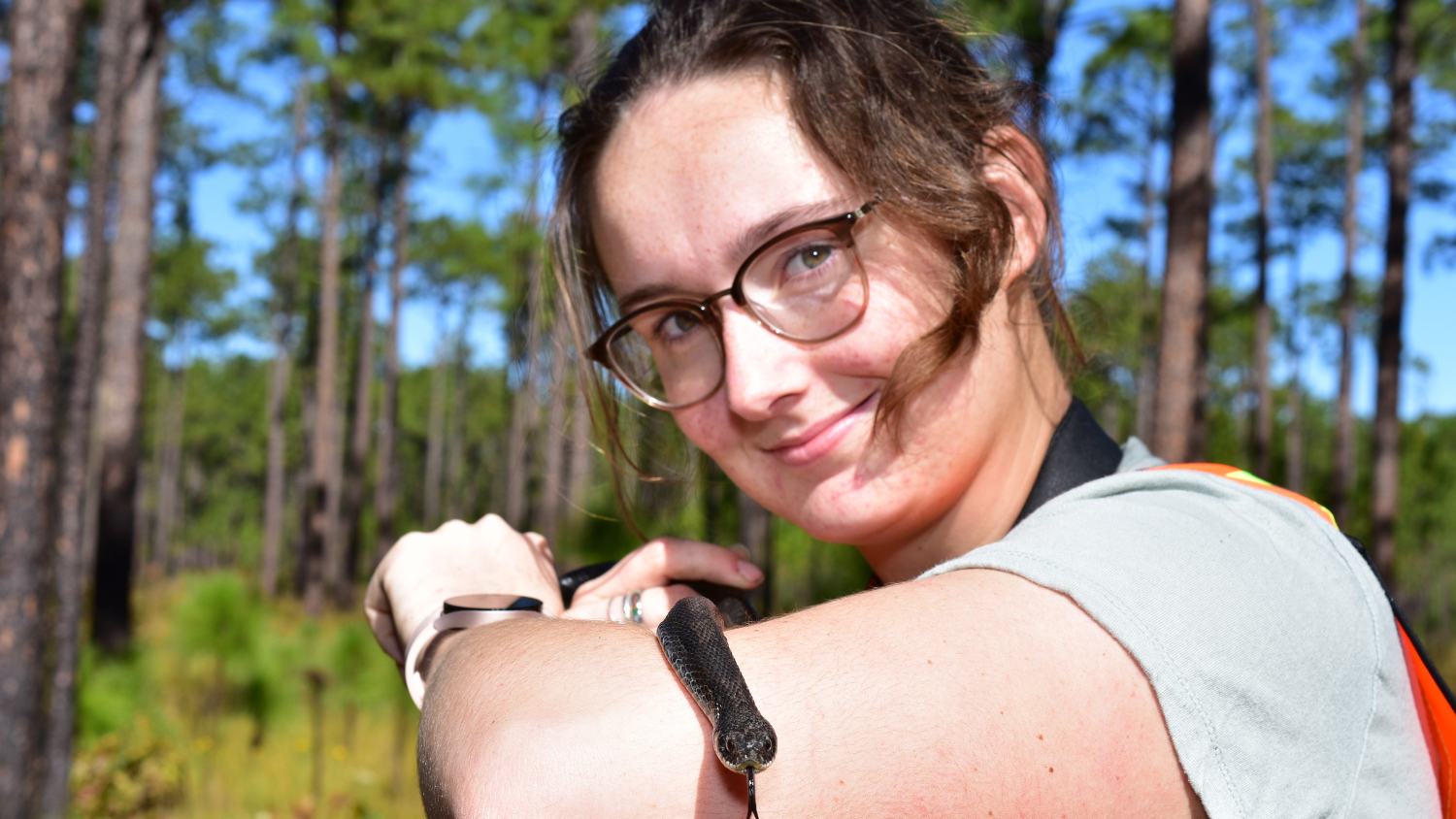Not Your Average Summer: Improving Water Quality and Tree Health

Holly Walsh is a senior double majoring in environmental technology and management and chemistry at NC State’s College of Natural Resources. This summer, Walsh is working as an undergraduate researcher with Elizabeth Nichols and Solomon Ghezehei, both of the Department of Forestry and Environmental Resources.
In her role, Walsh is contributing to numerous research projects focused on groundwater wells, chemical databases and trees. We recently spoke with Walsh about her internship experience and what she’s learned so far. Check it out below.
What kinds of things are you doing during your internships?
Through my work with Dr. Nichols, I have been traveling out to Hofmann Forest to condition groundwater wells by purging them with a bailer in order for measurements to be taken. I have also been submitting unwanted waste pickup requests, along with properly disposing of previously collected water and soil samples.
In addition, I have been assisting a graduate student with her research project since the beginning of spring semester by going through chemical databases and recording data pertaining to a chemical’s characteristics along with their sources.
With Dr. Ghezehei, I have been taking a variety of tree measurements using a clinometer. Working in the field and in the lab has allowed me to strengthen my technical skills and learn how my knowledge from the classroom can be used in a real-world setting.
How did you find out about these internships and why were you interested in them?
I found out about the Office of Undergraduate Research (OUR) through the Department of Forestry and Environmental Resources’ newsletter. The idea of conducting undergraduate research interested me because I was looking for an experience that would not only provide a hands-on learning experience but also teach me about how to conduct and use research. I’ve always been interested in research projects and the discovery of new information, but I never understood how these projects were created and carried out.
In what ways did the College of Natural Resources prepare you?
The College of Natural Resources does a fantastic job at teaching students about their field of study using hands-on activities and real-world scenarios. For example, the instructor in one of my environmental technology courses taught the class how to take groundwater samples by actually taking us out to a well located on campus that we could use for practice. I was able to calculate the well volume that needed to be removed from the well before a sample could be taken, as well as purge the well of that water volume and finally take a sample. There were multiple courses I took that utilized this hands-on approach to learning and I believe it has prepared me to do field work in an efficient and effective way. These courses have also increased my confidence when it comes to working with similar or new pieces of technology for undergraduate research or internships.
What new skills or information have you learned during your internships?
I’ve learned how to apply what I’ve learned in my classes to scenarios that aren’t perfect. I’ve learned to think critically about the situations I’m in and what I can do in the moment to fix a problem or make my situation better. I’ve also learned to trust myself and the knowledge that I have to learn new skills and advance my knowledge in ways that are challenging to me.
What are your long-term goals, career plans and how do these internships factor in?
As a rising senior I have a few different career plans that I am thinking of pursuing, including graduate school and environmental consulting. My hope is to find a career that encompasses both my passions for the environment and for chemistry while allowing me to work inside and outside of the field. My undergraduate research experiences are helping me follow these career plans as it’s showing me what aspects of my field of study I like and dislike. These experiences are also providing valuable skills and knowledge that I can use if I decide to head my own research project or to head my own environmental site assessment project working for a firm.
One of my long-term and most important goals is to enjoy and find fulfillment in the work that I am doing, and this opportunity has allowed me to explore what type of research or work makes me happiest. I believe any educational opportunity, no matter whether you enjoyed the work or not, can only work to your benefit when discovering what career plan and goals you want to pursue.
What’s the most important thing you’ve learned while at NC State?
The most important thing I’ve learned while at NC State is to never be afraid to ask for help or guidance when you feel as though you need it. Everyone I’ve met at NC State and the College of Natural Resources has only ever wanted me to be successful and were always willing to assist me or speak to me whenever I needed. I have become self-aware of what my strengths and weaknesses are, and by taking ownership of my education, I’ve learned to surround myself with supportive friends, professors and mentors that will help me achieve my goals.
- Categories:


